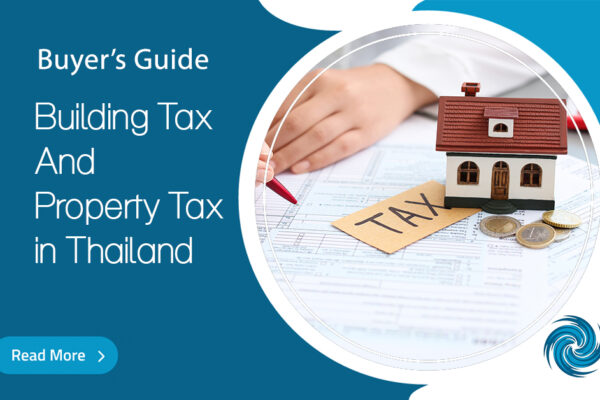
Complete 2025 Phuket Property Due Diligence Checklist for Investors
Download as a PDF: 15-Point Phuket Property Due Diligence Checklist
Are you eyeing that dream property in Phuket but worried about potential pitfalls? Don’t let your tropical paradise turn into a nightmare.
Our comprehensive Phuket property due diligence checklist will arm you with the knowledge to make a sound investment in Thailand’s most sought-after real estate market.
Investing in Phuket real estate can be incredibly rewarding, but it’s not without risks. First of all, you might want to read our post on how foreigners can buy and own property in Phuket, Thailand, so you are clear on the options available.
The Thai property market has its own unique set of rules and potential traps that can catch unwary investors off guard. That’s why thorough due diligence is crucial before signing on the dotted line.
In this guide, we’ll walk you through a meticulously crafted 15-point checklist designed to protect your investment and ensure you’re making an informed decision.
From verifying land titles to understanding zoning laws, we’ve got you covered.
The Ultimate Phuket Property Due Diligence Checklist
- 1. Verify the Land Title
- 2. Check for Encumbrances
- 3. Confirm Ownership and Transfer Rights
- 4. Understand Zoning Laws
- 5. Assess Environmental Risks
- 6. Review Building Permits and Certificates
- 7. Conduct a Professional Property Inspection
- 8. Evaluate Infrastructure and Utilities
- 9. Research the Neighborhood and Future Developments
- 10. Understand Tax Obligations
- 11. Verify Foreign Ownership Quota (for Condominiums)
- 12. Review Contracts Carefully
- 13. Conduct Due Diligence on the Developer (for Off-Plan Purchases)
- 14. Understand Management and Maintenance Costs
- 15. Plan Your Exit Strategy
- Frequently Asked Questions
1. Verify the Land Title
Start with the basics. Ensure the property has a clear and legitimate title deed (Chanote). This is the strongest form of land ownership in Thailand. Be aware that there are other forms of land documents in Thailand, such as Nor Sor 3 Gor, which offer less security. Always aim for a Chanote title if possible.
So it is a great start to find out about the title deed of the property you’re about to purchase and take it from there.
Key Action: Obtain a copy of the title deed and verify its authenticity with the local Land Department office. Check for any annotations on the back of the title deed that might indicate restrictions or encumbrances.
2. Check for Encumbrances
Ensure the property is free from any liens, mortgages, or legal disputes. In Thailand, it’s not uncommon for properties to have hidden debts or claims against them. A clear title is crucial for a secure investment.
Key Action: Conduct a thorough title search at the Land Department to reveal any registered encumbrances. This should include checking for any recent transfers or suspicious activities related to the title.
3. Confirm Ownership and Transfer Rights
Verify that the seller has the legal right to sell the property and that there are no restrictions on transferring ownership. In some cases, especially with leasehold properties or those owned by companies, there may be complex ownership structures that need careful examination.
Key Action: If the seller is a company, check the company’s registration and ensure it’s in good standing. Verify the company’s shareholders and directors, and ensure they have the authority to sell the property.
4. Understand Zoning Laws
Make sure the property’s current and intended use complies with local zoning regulations. Zoning laws in Phuket can be complex and subject to change. What’s permitted today may not be allowed in the future, potentially affecting your investment’s value.
Key Action: Obtain a zoning certificate from the local authorities. Also, research any upcoming changes to zoning laws that might impact the property’s use or value in the future.
5. Assess Environmental Risks
Phuket’s tropical climate presents unique environmental challenges. Investigate potential flood risks, erosion issues, and other natural hazards. Coastal properties, in particular, may face risks from rising sea levels and storm surges.
Key Action: Commission an environmental impact assessment if necessary. Consider consulting with local environmental experts who understand Phuket’s specific ecological challenges.
6. Review Building Permits and Certificates
For existing structures, ensure all necessary building permits and certificates of occupancy are in order. In Thailand, it’s not uncommon for buildings to have unauthorized modifications or additions.
Key Action: Verify all construction documentation with the local building department. Check that the built area matches what’s officially permitted and registered.
7. Conduct a Professional Property Inspection
Hire a qualified inspector to assess the property’s condition, including structural integrity, electrical systems, and plumbing. Phuket’s tropical climate can be harsh on buildings, leading to issues like mold, corrosion, and pest infestations.
Key Action: Engage a reputable property inspection company with experience in Phuket real estate. Ensure they check for tropical-specific issues like termite damage and salt air corrosion.
8. Evaluate Infrastructure and Utilities
Check the availability and quality of essential services such as water, electricity, and internet. In some areas of Phuket, these services may be less reliable or more expensive than expected.
Key Action: Confirm connections with local utility providers and assess service reliability in the area. Check water pressure, power stability, and internet speeds personally if possible.
9. Research the Neighborhood and Future Developments
Investigate the surrounding area and any planned developments that could impact your property’s value. Phuket is constantly evolving, and new developments can significantly affect property prices and quality of life.
Key Action: Check with the local planning office for upcoming projects and zoning changes. Talk to neighbors and local real estate agents about the area’s reputation and any known future plans.
10. Understand Tax Obligations
Familiarize yourself with the tax implications of your purchase, including transfer fees, specific business tax, and ongoing property taxes. Thailand’s tax laws for property can be complex, especially for foreign buyers.
Key Action: Consult with a Thai tax expert to understand your full tax liability. Consider both one-time purchase taxes and ongoing annual property taxes.
11. Verify Foreign Ownership Quota (for Condominiums)
If you’re buying a condominium, ensure that the foreign ownership quota (limited to 49% of the total unit space) has not been exceeded. Exceeding this quota can complicate the transfer process and potentially affect your ownership rights.
Key Action: Request documentation from the juristic person managing the condominium. Verify the current foreign ownership percentage and ensure your purchase won’t exceed the legal limit.
12. Review Contracts Carefully
Have all contracts, including the sale agreement, thoroughly reviewed by a qualified Thai lawyer. Thai legal documents can be complex, and subtle nuances in language can have significant implications.
Key Action: Engage a reputable law firm with experience in Thai property transactions. Ensure all contracts are provided in both Thai and English, and that you fully understand all clauses before signing.
13. Conduct Due Diligence on the Developer (for Off-Plan Purchases)
If you’re buying an off-plan property, research the developer’s track record, financial stability, and reputation. The Thai property market has seen cases of developers failing to complete projects or deliver on promises.
Key Action: Request evidence of the developer’s previous successful projects and financial statements. Check online reviews and forums for feedback from previous buyers.
14. Understand Management and Maintenance Costs
For condominiums or managed properties, review the management structure, common area fees, and sinking fund contributions. These ongoing costs can significantly impact your investment’s profitability.
Key Action: Obtain detailed breakdowns of all ongoing costs associated with the property. Review historical increases in fees and assess the adequacy of the sinking fund for future major repairs.
15. Plan Your Exit Strategy
Consider how you might sell the property in the future. Understanding the resale market and any restrictions on transferring ownership is crucial. Some properties in Phuket may be easier to sell than others, depending on location, type, and ownership structure.
Key Action: Research historical price trends and consult with local real estate agents about the property’s resale potential. Consider factors like rental yield and capital appreciation when assessing long-term investment value.
Frequently Asked Questions
How long does the due diligence process typically take?
A thorough due diligence process can take anywhere from 2-4 weeks, depending on the complexity of the property and how quickly information can be obtained.
Can I conduct due diligence myself, or should I hire professionals?
While some aspects can be done independently, it’s highly recommended to engage local professionals, including a lawyer, property inspector, and tax advisor, to ensure a comprehensive review.
What are the most common issues uncovered during due diligence in Phuket?
Common issues include unclear land titles, zoning violations, undisclosed encumbrances, and discrepancies in property measurements.
Conducting thorough due diligence is not just a precaution; it’s an essential step in securing your Phuket property investments. By following this 15-point checklist, you’ll significantly reduce your risk and increase your chances of a successful and profitable investment in paradise.
Remember, the Thai real estate market can be complex, especially for foreign investors. Don’t hesitate to seek professional assistance to navigate the process. With the right approach and diligence, your Phuket property dream can become a secure and rewarding reality.








